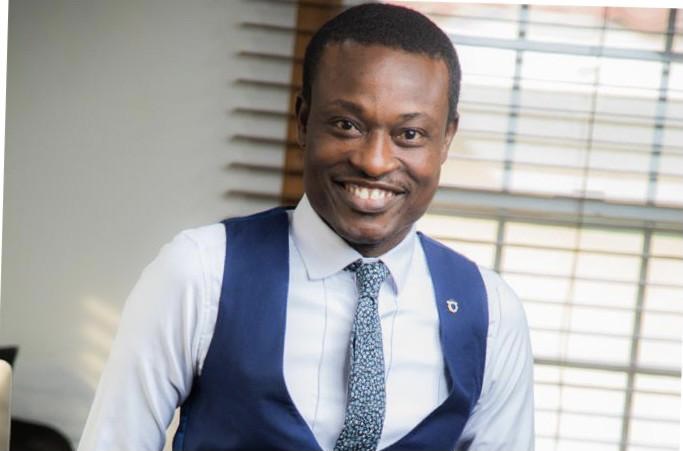
All contracts should go to Special Prosecutor
In 2005, Pastor Mensa Otabil, ICGC, made a comment which I find very pertinent to my issues today.
Answering questions by a research student of the Akrofi-Christaller Institute of Theology in 2015 for her M.A. Project Essay, Pastor Otabil, in a lamentation over “the horrendous ineptitude” of governance in Ghana, concluded that “our present day politician has misjudged the depth and extent of the people’s tolerance. They have known us as tame and taken it for granted that that is how we shall always be”.
That was Pastor Otabil in 2015.
In 2021, change is coming. The “Fix The Country” citizen mass action was a shock to our politicians. I insist, however, that shock is not enough: the people must begin to see evidence of repentance leading to a 180 degrees turn-around.
Meanwhile, I have come to a conclusion what the modus operandum is. They steal as much as they can, with two hands and two feet, usually through international contracts.
The price build-up takes care of kick-backs, especially to unnamed and faceless intermediaries.
That is why I plead that Martin Amidu may be gone as Special Prosecutor but his Corruption Risk Assessment initiative in the Agyapa debacle should be adopted.
Every government contract should go through the Office of Special Prosecutor before it goes to Parliament. One of its KPIs should be the elimination of contract intermediaries.
How?
If my fear of intermediaries is unfounded, how did the following contracts receive approval and execution?
On June 25, 2021 reliable news sources reported that the US Security and Exchange Commission (SEC) had found a former boss of the Tema Oil Refinery guilty of bribery.
According to the American SEC, the Ghanaian (doubling as a US citizen) who was a former executive at Goldman Sachs, arranged $4.5 million in bribes to be paid to a government official in Ghana to help a Turkish energy company win a contract to build a power plant in Ghana.
The American SEC said the ex-TOR boss personally paid at least US$66,000 to a number of Ghanaian MPs.
Last August 26, Reuters reported that the London International Court of Arbitration had dismissed a US$478 million case against the Bank of Ghana (BoG) over a cancelled contract to develop an electronic payments system.
The Sibton Switch Systems Limited, a Ghanaian company, brought the case against the bank in 2018 for cancelling the contract awarded it in 2016 to build and operate a system for interoperability in mobile money transactions.
It was established that a BoG management staff (name withheld in this column) “accepted a $66,000 bribe from Sibton Switch in exchange for facilitating the original agreement”.
The bank found that the Sibton contract was one-sided and that the price charged by the company was 33 times more than the next most expensive bid during the tendering process.
Plus, it said, “Sibton had neither acquired the licence nor fulfilled the condition precedent for the effectiveness of the rights and obligations of the parties.”
In the Sibton case, the chance discovery was occasioned by a suit which Sibton filed in the UK. The London lawyers of the BoG, in their vigilance, flew into Ghana and did a thorough investigation: they interviewed all BoG staff. When the heat became unbearable, the rat popped out of its hole.
Question
Question: why did it have to take a change of government for the BoG to get suspicious enough to order an investigation?
Question: how did Sibton win the contract though it had no licence? In Ghana, is this possible without the nod of a strong man above?
God loves Ghana. See how the Airbus deal got exposed. Airbus, the European aircraft manufacturer, was found guilty by a court in the UK of paying bribes to certain Ghanaians when it sold three military aircraft to the country.
Martin Amidu, Special Prosecutor, invited four persons, including a Ghanaian based in the UK, to help in the investigation but the National Democratic Congress (NDC) flexed, swearing to finish off whichever judge(s) will sit on the case.
In the Bus Rebranding saga, it took civil society to get the deal exposed. But I wonder if this will repeat itself. The court bills were footed by the few individual civil society members and that was not small money.
I have no doubt that if Ghanaians decide to make the prosecution of such cases cost free, the Ace Ankomas, the Kofi Bentils and the Samson Lardy Anyeninis will rise to the occasion.
Dear readers, I am happy to announce the formation of a movement by Medical Dr Ken Nii Aryeetey and other like-minded Ghanaians identified by the hashtag “do the right thing”. Details in due course.
The writer is the Executive Director, Centre for Communication and Culture,
E-mail:
